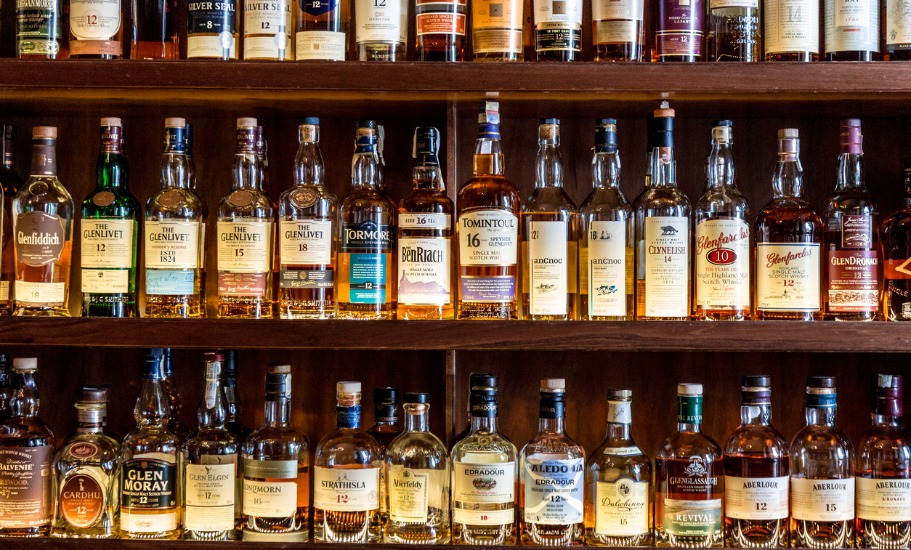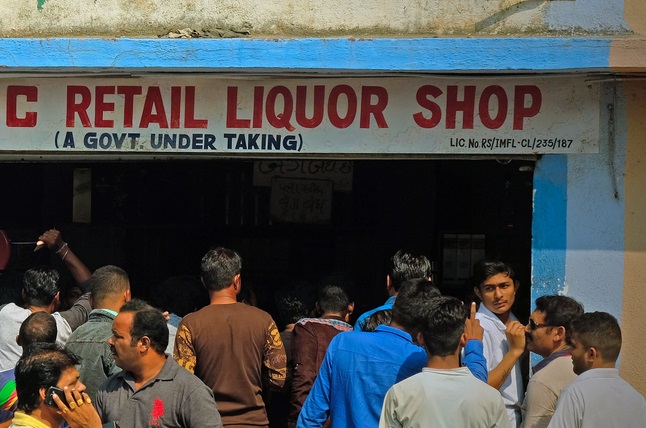
Drinking alcohol, a habit India loves to hate yet can’t do without
The shutdown on liquor vends, ultimately, was lifted not because of any earth-shaking argument on the innocence of the drink habit or the absence of righteous opposition to it. The clincher, cynical as it may sound, was the hard cash that the trade brings in.

Try defending drinking of alcohol in India. You will, more often than not, face the full force of disapproval, either subtly or bluntly. If it is in front of your family, it could result in an embarrassed silence. If in the company of colleagues, it could evoke a bemused response. You can probably get away only if you are exhorting friends, or fellow-drinkers, on the merits of liquor.
Yet, when liquor shops opened in many parts of the country on Monday, the more-than-a-mile long queues, crowds, chaos and the desperation that accompanied the purchase would have one wonder what the fuss was all about. It would seem that there were enough and more people even ready to get beaten by the police if not give up their life for the elusive “bottle”.
Watching from the sidelines, the not-so-desperate boozers, the non-drinkers and alcohol-haters had a field day. If the occasional drinkers looked on sympathetically, the teetotallers frowned while the self-righteous demanded that all freebies be withdrawn if any, among the drinkers, was found to be on government dole.
Historically, India has had a love-hate relationship with liquor. Father of the nation Mahatma Gandhi, after his dalliance with alcohol took a strong position against the habit of drinking. The Constitution in its directive principles followed Gandhi and recommended prohibition.
Several states have at various times enforced prohibition and then gave up. Bihar and some states of the North-East are at it now. Gujarat, the birthplace of Gandhi, is the only state that continues with the policy since 1960. But it is widely known and acknowledged that there are discreet ways to get alcohol in Gujarat, the prohibition notwithstanding.
Related news: 2.03 crore Indians have problems: A look into dark world of alcohol, narcos
There is no getting away from the impression that most of India, especially among the vocal middle-class, look down upon the habit of drinking. And, this finds its way into state policy. For example, during the 40-day corona lockdown, essentials were available. Incontestably, groceries were on top of this list. But liquor shops were forced shut. To the question whether it is an essential commodity, the answer is pretty simple. For those who drink, it is, and for those who don’t, it is not.
The state, especially at a time when a conservative party like the BJP is in power at the Centre, unquestioningly banned liquor. Assuming it had been allowed in a restricted manner like other essential supplies were, would it have in any way compounded the spread of the coronavirus? There were long lines to buy groceries. Similarly, there would have been a crowd to buy liquor but within manageable numbers. If liquor had been available, there would have been no chaos and mess of the kind on Monday.
Other countries that imposed a lockdown like, say Canada, did not impose a similar ban on liquor stores and they were easily available. But then India is not Canada. Drinking here has always existed from the vedic ages but society has remained in self-denial.

Movies, theatre and popular culture have stereotyped drinking as a habit that means vice, criminal and everything else that is considered bad for society. Indians have grown up watching on celluloid the dimly-lit bar with a skimpily-clad Helen or Silk Smitha swaying to a boozy sensual tune. The message is clear: if you want to be a hero, avoid the drink. If you insist on drinking, you will have to be a villain.
Among the states that have tried prohibition several times is Tamil Nadu. No wonder that a politician from that state, Anbumani Ramadoss etched his worldview as union minister by mandating that films with a drinking scene had to be accompanied by a scroll with a statutory health warning. Since then, drinking scenes have effectively been disfigured on screen and none has been able to get this de-mandated.
For those who have suffered from the downsides of the alcohol habit, Monday’s liquor-thirsty crowds were an eye-opener as it showed that the habit is far more entrenched than one would have wanted to believe. An eclectic mix of gender, age and disposition was there for everyone to see.
What cannot be easily dismissed, though, is the ill-effects of alcoholism. Thousands do get into addiction and the way out of it is not easy. Many, particularly women, suffer from the violence inflicted by drunken husbands and families have gone to ruin.
Related news: Alcohol in Nairobi’s care package: Governor says it kills COVID-19; WHO denies
But, as history will show, an extreme solution including proscribing drinking has never worked. Illicit liquor has quickly turned up as an alternative. In the latest 40-day shutdown, social media came up with myriad ways to brew a drink at home. And interestingly, most methods were entirely doable. It may not have been thought of as an illicit brew, but the point to be noted is the alternative to mainstream liquor is always round the corner.
In the Western world, offering wine, beer or any other drink is as casual and natural as a host offering tea or coffee in India. But here, in traditional families, the drink is safely hidden from view at home. Any talk of liquor is avoided, and the deed is done in secrecy. In liberal settings, hard liquor is as freely available as say, fruit juice or tea and coffee. Though likely fewer in number, this trend seems to be catching on in urban India. But that’s a topic for another day.
The debate over the drinking habit and the ease of access to alcohol will go on forever. The chances of a consensus are as remote as mixing milk and scotch.
The shutdown on liquor vends, ultimately, was lifted not because of any earth-shaking argument on the innocence of the drink habit or the absence of righteous opposition to it. The clincher, cynical as it may sound, was the hard cash that the trade brings in. This, especially at a time when the lockdown has dried up all sources of accrual. On Monday and Tuesday, the revenue-starved state of Karnataka reportedly earned around ₹240 crore of liquor money, no less. And that settled the issue — morals, beliefs and habits be damned!
(Disclosure: The writer is more than an occasional drinker)


